High-Precision Springs
All Built-to-Order.
Tokai Spring industries is unique among spring manufacturers because its products are made built-to-order and the company makes high-precision, custom-made items according to customer specifications, even engaging in job production, or “jobbing” (i.e. single-item production). Tokai Spring can handle a wide range of spring shapes, from coil springs and leaf springs to disc springs and volute springs, and the company keeps a constant stock of 2,500 types of spring materials so it can promptly build products when a client needs them.
Tokai Spring was founded in 1934. At the time there were already many spring makers in the market, with no room for a new player to enter. That’s why Tokai Spring decided not to get into mass production. Instead the company followed a different path by entering a niche market for spring manufacturing, taking on the jobbing, small lot production and special materials that were time-consuming for existing spring makers.
As the manufacturing sector grow during the post-war boom years, spring makers were pushed towards mass production and they reaped huge profits as production processes became more automated. Even so, Tokai Spring never veered off course, sticking exclusively to build-to-order, jobbing and small lot production while its employees honed their skills. Meanwhile, the company began to gradually systematize order and materials management in the 1970s.
When the asset-inflated bubble in Japan burst in the late-1980s, large manufacturers struggled to cut costs as their markets shrank. But Tokai Spring kept passing on and improving its workers’ technical expertise and skills. The company remains profitable because it specializes in special, high-performance and high-precision springs that the competition cannot offer.
The Hitotsubashi University Graduate School of International Corporate Strategy awarded Tokai Spring the Porter Prize in 2008 in recognition of the company’s unique competitive strategy and high profitability.
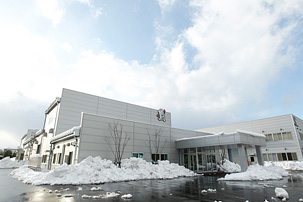
Tokai Spring industries’s Toyooka-Kamiyoshidai Plant in Toyooka, Hyogo Prefecture, a city known for its storks.
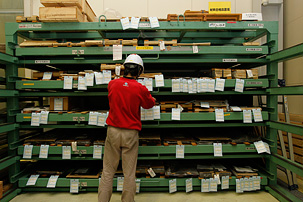
Spring material stock. Tokai Spring keeps a constant, wide-ranging stock of 2,500 types of spring materials so it can handle orders quickly.
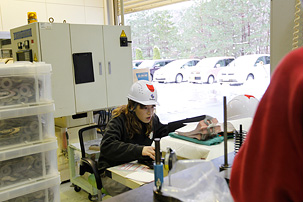
Tokai Spring has more than a few female engineers.
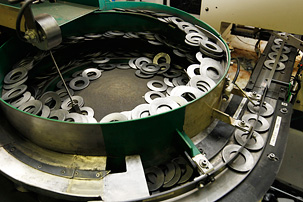
Here, disc spring materials are polished and processed to a thickness of 0.001 mm.
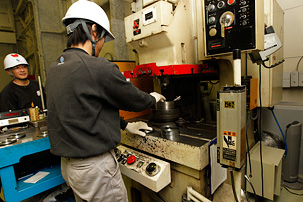
Large disc springs are built with a press because cutting them leads to variable stress and does not produce the desired precision.
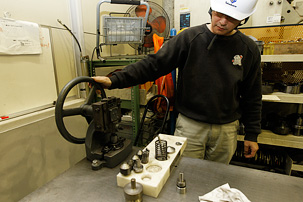
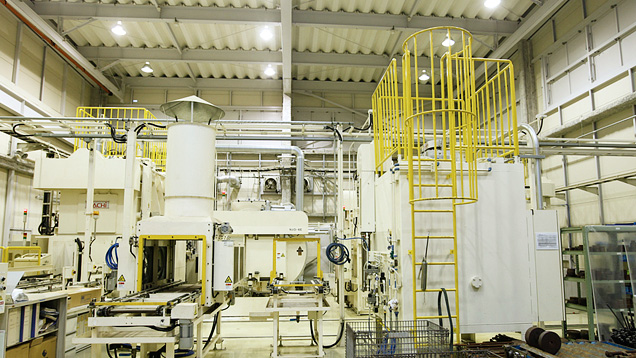
Disc spring heat treatment equipment. While many competing manufacturers outsource heat treatment, Tokai Spring provides products with added value by performing heat treatment in-house, despite the cost.
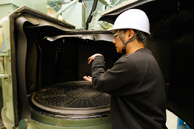
Tokai Spring finishes up disc spring surfaces by using a surface treatment method called shot peening.
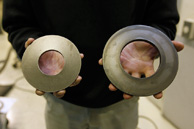
The disc on the left side of this photo shows the finished product.
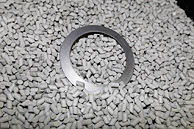
Thin disc springs have their surfaces treated with a method called barrel polishing.
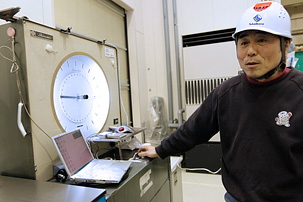
Tokai Spring makes a sustained effort to inspect springs so that their effects are according to specs. Because it makes products with high added value, the company places a heavy emphasis on inspections, using five types of inspection equipment that apply different forces.
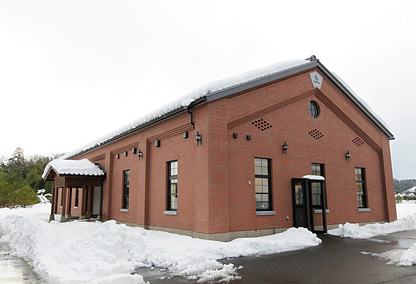
President Watanabe says the company built the Keishokan factory, made with brick walls and opened in 2009, to “train true craftsmen.”
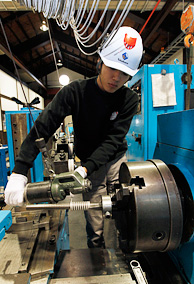
A highly skilled engineer makes coil springs by hand at the Keishokan factory.
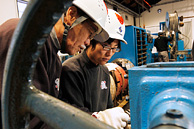
Skilled veteran engineers selected from among the company instruct and pass skills on to younger engineers.
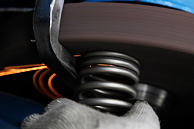
A grindstone is used to polish up the end of a coil spring.
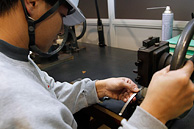
In addition to coil springs, leaf springs are also made by hand in the Keishokan factory.
Tokai Spring industries, Inc.
INTERVIEW
インタビュー
Building springs means developing people.
Tokai Spring lives on products with added value, not cost cutting.
Tokai Spring industries, Inc.
President
Yoshiki Watanabe
